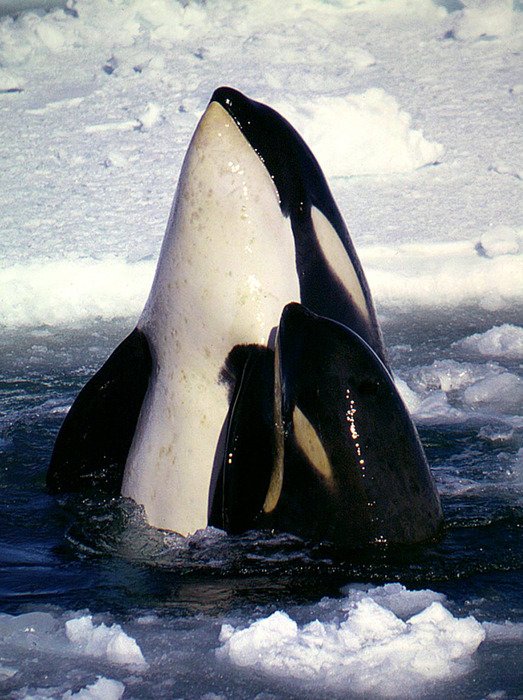Orca whale with offspring.
EXETER, England, Oct. 17 (UPI) -- Killer whales go through menopause just like humans, and the trait may have evolved to improve chances of survival for orca offspring, British researchers say.
Killer whales are one of only three species that live long lives after they have stopped reproducing, allowing orca mothers to spend the rest of their lives looking after their offspring, they said.
Scientists from Exeter University and York University analyzed data on birth and death dates as well as details of the genetic and social relationships in two populations of killer whales, which share their menopausal trait with only humans and pilot whales.
"Our main aim is to understand why these killer whales have a menopause strategy that's so similar to humans," Exeter researcher Darren Croft told The Guardian. "Female killer whales stop reproducing in their 30s or 40s but live until they are 90."
The unusual social structure of killer whales may be why they evolved to experience menopause, the researchers said.
Both male and female offspring live with their mothers for the duration of their mothers' life, they found, with males returning to their mothers' sides after mating with females in other family groups.
"The possible benefits of menopause for killer whales are that the mothers can care for their children and grandchildren and avoid reproductive competition with their daughters," Croft said.
Killer whale mothers, because of their long life spans, also take a leading role in the whales' 40-strong family groups after they stop reproducing and share their expertise of when and where food will be available with their younger relatives.















